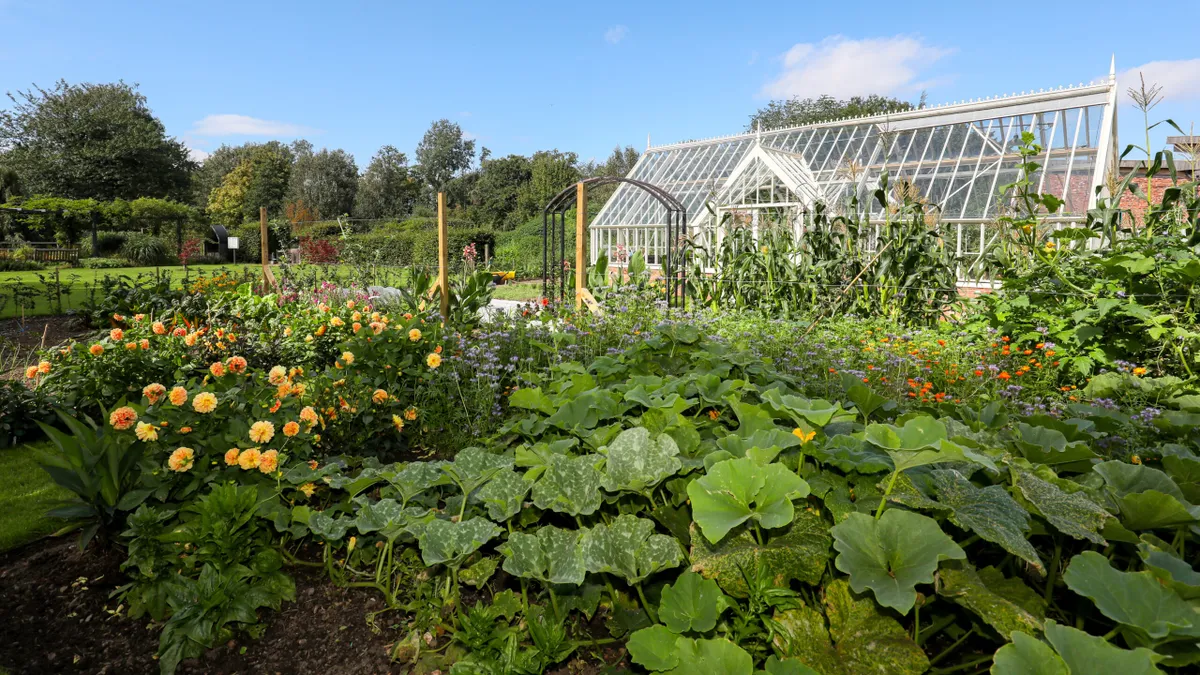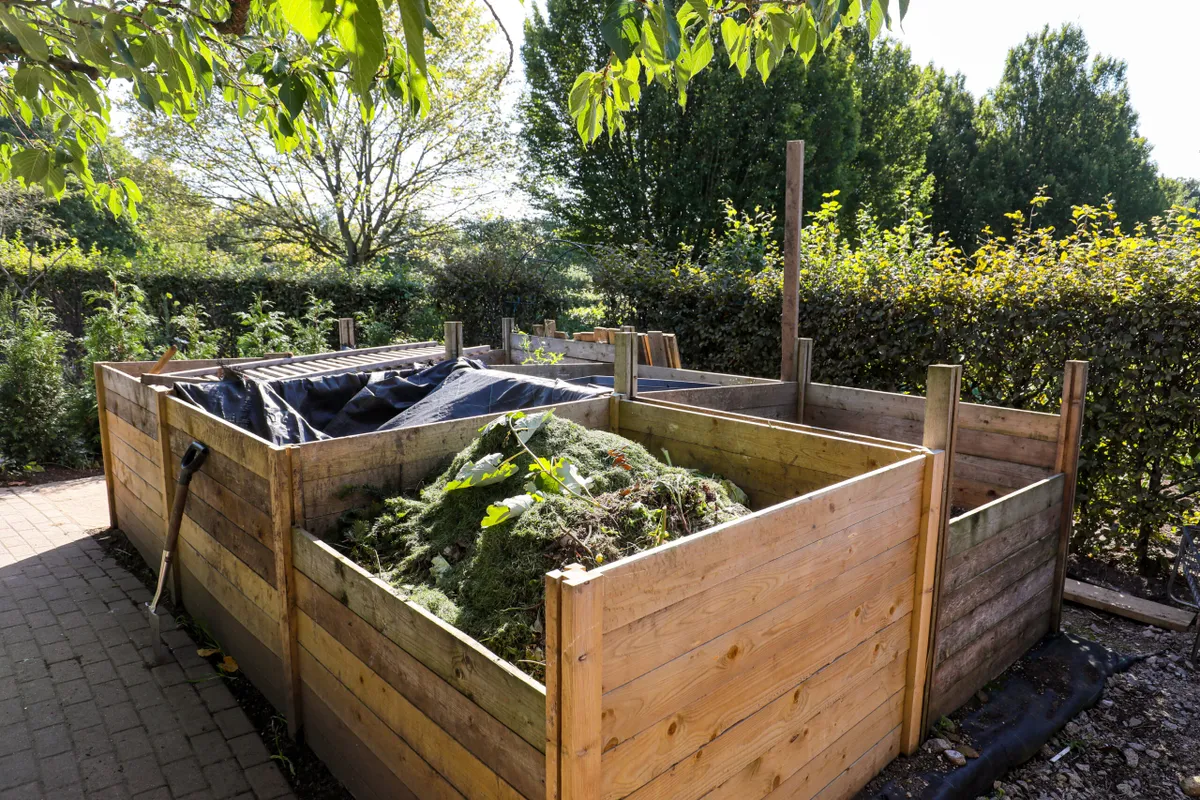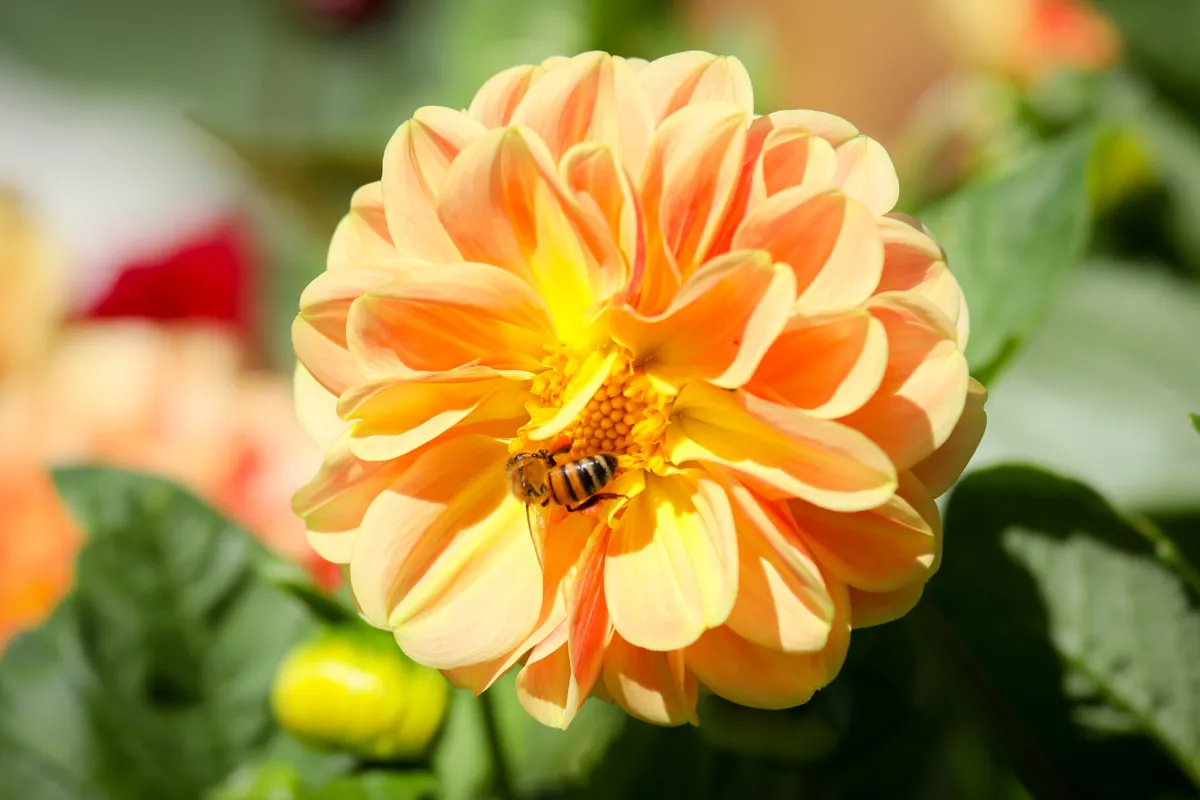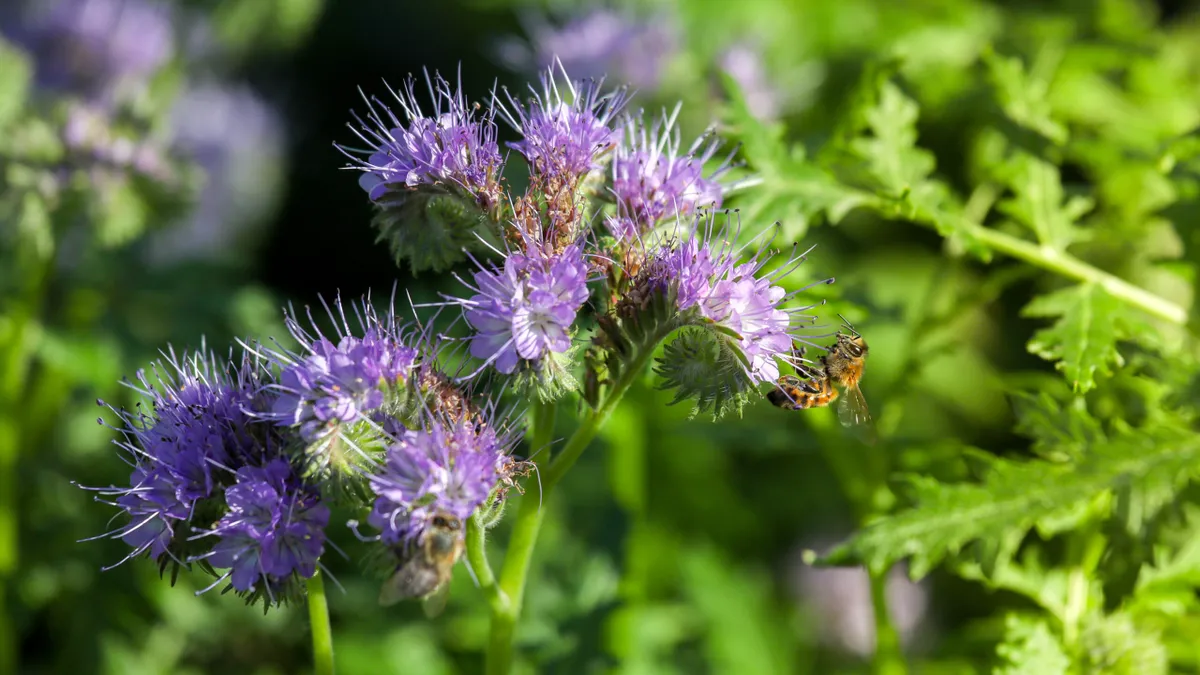Isn’t it time you took the organic gardening way?
Every year, organic gardeners, producers, farmers and manufacturers join in the Organic September campaign, to celebrate the wide-reaching benefits of organic methods and encourage more people to make sustainable choices.
Jump to
You may also like
- The best organic nurseries
- Organic gardening tips from Yeo Valley
- Meet Anna Mortimer Belmont Estate's Organic Kitchen gardener
- Meet the former Blue Peter gardener and now Garden Organic head of Horticulture
- Why we should all be buying organic bulbs
- What does organic actually mean? We break down the confusing terms
In the face of unprecedented biodiversity and climate crises, choosing to garden organically at home or on the allotment is a positive way we can all make a difference. It might seem like a big step, but it needn’t be. A shift in mindset and some simple swaps will have an immediate impact on how you interact with your growing space. And with time you should see a healthier soil, stronger plants, greater biodiversity and fewer trips to the garden centre. No intimidating, clipboard-bearing inspectors will be knocking at your garden gate, we promise!
Tips for going organic in your garden
Plan your plot

Organic growing is about good planning. A well-managed site should grow plants that suit the local environment and soil. Grow a diverse range of plants and consider how you can provide food and habitat sources for beneficial insects all year round. If possible, rotate your crops so that plants of different families are grown in a different place each year, preventing the build-up of pests and diseases.
Reuse your green waste

Building a compost heap is the ideal way to turn your kitchen and garden waste into a valuable product to benefit the soil and future food crops. If you are growing in a limited space, consider a small wormery that could be kept indoors.
Get to know your friends

It is important to be able to differentiate between the creatures that benefit our food crops and those that are trying to eat them. Many have vital roles in pollination and there is a whole host of creatures that help keep populations of pests under control.
Here's how to attract more wildlife to your garden
What is organic gardening?
Organic growing emphasises looking after the whole growing environment rather than just the individual plants. It also recognises the importance of understanding natural processes so that your growing practices can work with them rather than trying to fight them.

To help put this mindset into practice, Garden Organic has five guiding principles:
- Build and maintain soil health. Organic growing recognises that a healthy soil is vital for providing a continuous supply of healthy food crops. Applying compost and growing green manures will do much to boost the health of your soil.
- Encourage biodiversity. Different life forms such as plants, insects, birds and mammals all have a role in creating a resilient growing system. Encourage biodiversity by providing a range of habitats and food sources such as a pond and wildflower areas.
- Use resources responsibly. Organic growing extends to using resources sustainably, especially with regard to water consumption and use of materials for structures and containers.
- Avoid using harmful chemicals. Toxic chemicals used to kill weeds, diseases and pests can damage the health of your growing area, and all the life-forms within and beyond it. Consider cultural ways of preventing pest and disease outbreaks, such as choice of varieties or use of barriers, rather than attempting to eradicate them with chemicals.
- Maintain a healthy growing area. Keeping your growing area in good health, rather than just pest and disease free, is at the heart of organic growing. A diverse and vigorous growing system, good hygiene, and close observation all contribute to producing healthy crops.
Sounds good, where do I start?

If you’re looking for more help with nurturing an organic oasis, have a look at becoming a member of Garden Organic. You’ll get access to a whole host of information on organic growing, plus will help support the charity’s education and campaigning work. Find out more at www.gardenorganic.org.uk/join